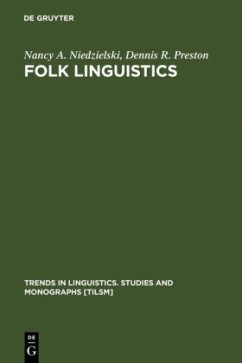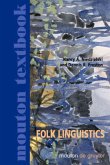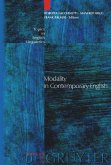"Folk knowledge of language has not engaged linguists very often in the history of that field. Introductory texts often disparage folkbelief in contrast to 'scientific truth'. In fact, language is a ubiquitous topic of discussion and general concern of the folk. They talk about grammar, pronunciation, first and second language learning, language disabilities, dialects, gender and language, and a host of other topics. This book approaches such beliefs as one of most important aspects of ethnography. Surely what a people believe about their language is as important as any other key to an understanding of their culture. This fascinating book investigates how non-linguists think and talk about language, an area overlooked by linguists, as the authors show."
Joseph Salmons in: Diachronica
Joseph Salmons in: Diachronica
"This fascinating book investigates how non-linguists think and talk about language, an area overlooked by linguists, as the authors show."
Joseph Salmons in: Diachronica
"The people the book will most likely appeal to are applied linguists, the teachers of linguistics, and linguistically oriented educators. [...] It will be equally appealing to ethnolinguists and folklorists because the authors approach folk linguistic belief as one of the most important aspects of ethnography and as a key to understanding a culture." [...] The authors are to be applauded for being unafraid to tackle an issue that has long been leftout of scholarly research in linguistics. The book is recommended to anyone interested in language and linguistics and in how ordinary people regard these topics."
Deni Zeyrek, Middle East Technical University, Ankara, Turkey, in: Asian Folklore Studies, Nagoya (Vol.LXI-1/2002)
Joseph Salmons in: Diachronica
"The people the book will most likely appeal to are applied linguists, the teachers of linguistics, and linguistically oriented educators. [...] It will be equally appealing to ethnolinguists and folklorists because the authors approach folk linguistic belief as one of the most important aspects of ethnography and as a key to understanding a culture." [...] The authors are to be applauded for being unafraid to tackle an issue that has long been leftout of scholarly research in linguistics. The book is recommended to anyone interested in language and linguistics and in how ordinary people regard these topics."
Deni Zeyrek, Middle East Technical University, Ankara, Turkey, in: Asian Folklore Studies, Nagoya (Vol.LXI-1/2002)








